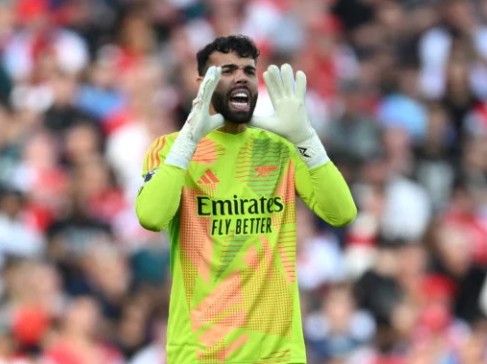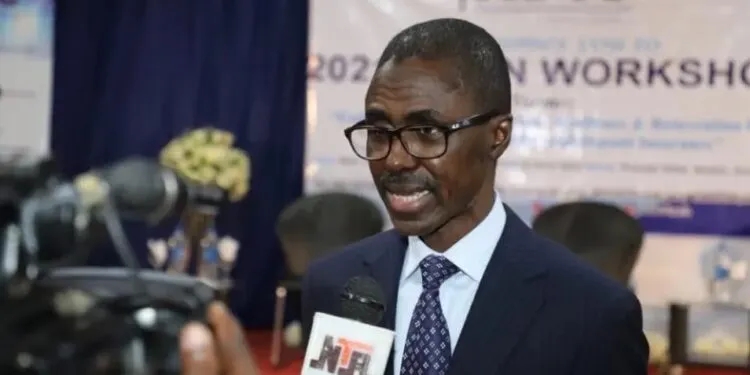Place your adverts here on InfoDig @ low rates; banner ads, sponsored links and guest articles etc. Contact us
Minister of Power, Adebayo Adelabu has said certain revolutionary measures were taken to ensure that over 40 per cent of Nigerians enjoy a more stable and regular electricity supply.
The power minister, who after a review of the activities in the sector in the last year, highlighted measures such as the new electricity act of 2023 that allows subnational governments to participate in the power sector, adjustment of the tariff policy, rejuvenation of the power infrastructure including bridging the metering gap, and the energy transition plan which enable the expansion of energy access to the conserved, especially the rural dwellers and the rural businesses.
He attributed the feat from the mixture of the above to the support of President Bola Ahmed Tinubu who had consistently advocated that Nigeria can be great and achieve breakthroughs in industrialisation through a stable and consistent power supply.
President Tinubu’s administration upon inauguration on May 29, 2023, met an installed generation capacity of 13,000 megawatts, but only 4,000 megawatts of power was being produced, transmitted and distributed to the entire country.
“Today, we are generating over 5,500 megawatts of power and the ministry is working to improve on this record, by the end of the year, as power supply constitutes one of the campaign promises of President Tinubu”, according to Adelabu who says that was the major and significant achievement of the ministry within the last year.
Adelabu emphasised the need for stable electricity in any economy, stating “This is why you see great economies like Korea, China, Europe, and North America industrialised today. Their stability in electricity supply has been instrumental to their economic growth and industrial development”.
“That’s why we say that we must achieve this for Nigeria as a country. We need to achieve the requisite economic growth and industrial development. Our dear president, President Bola Ahmed Tinubu, included this in the Renewed Hope Agenda as a major electoral policy to Nigerians. In his New Year speech on the 1st of January 2024, he emphasized the need for the country to have stable, functional, and reliable electricity to drive other critical sectors. This is the only way we can achieve the required economic growth and industrial development. In fact, none of the critical sectors can function optimally without electricity stability and functionality.
“Therefore, our vision is to ensure that we provide households, businesses, and institutions (educational and health institutions as well as industries) with stable electricity supply. This will enable them to power their activities, improve their capacity, and create more jobs.
He cited countries like South Korea, and industrial giants like Samsung, Hyundai, and LG didn’t just become global giants overnight, but with the support from the government through the provision of stable and reliable electricity for their operations. This is the vision we have for Nigeria and at the end of the day, a large proportion of our population will be electrified, industries will enjoy stable electricity, and this will increase production and create employment for our people”, the Minister said.
The Minister added that the ministry is to engender national development through appropriate policies, and the establishment of proper structures and institutions to ensure or achieve stable, functional, reliable, and affordable electricity supply to households, businesses, institutions, and industries.
“This will enable us to achieve the desired economic growth and industrial development. We also provide general oversight to ensure the overall well-being of the Nigeria Electricity Supply Industry (NESI).
Adelabu explained that the ministry works in conjunction with the Nigerian Electricity Regulatory Commission (NERC); Transmission Company of Nigeria (TCN); Rural Electrification Agency (REA); Nigerian Electricity Management Service Agency (NEMSA); Nigerian Bulk Electricity Trading Company (NBET); National Power Training Institute (NAPTIN); and Nigerian Electricity Liability Management Company (NELMCO) achieve the current stability in power supply.
In addition, he said the ministry also operates through the 27 power generating companies, and the 11 Electricity Distribution Companies across the country and the World Bank, the African Development Bank, GIZ, USAID, and other multilateral institutions that support the Ministry of Power.
“Between then and now, which is about a year, our installed capacity is over 14,000 megawatts of power due to the addition of the newly commissioned Zungeru hydroelectric power plant and improved capacity of some existing power plants.
“Moreover, the major achievement today is that we generate over 5,500 megawatts of power, we transmit and distribute it, and over 40 per cent of customers today enjoy over 20 hours of regular power supply across the nation. You can see that there is a significant improvement between when we came in and now, which we intend to improve further”, he said.

 1 hour ago
43
1 hour ago
43














 English (US) ·
English (US) ·